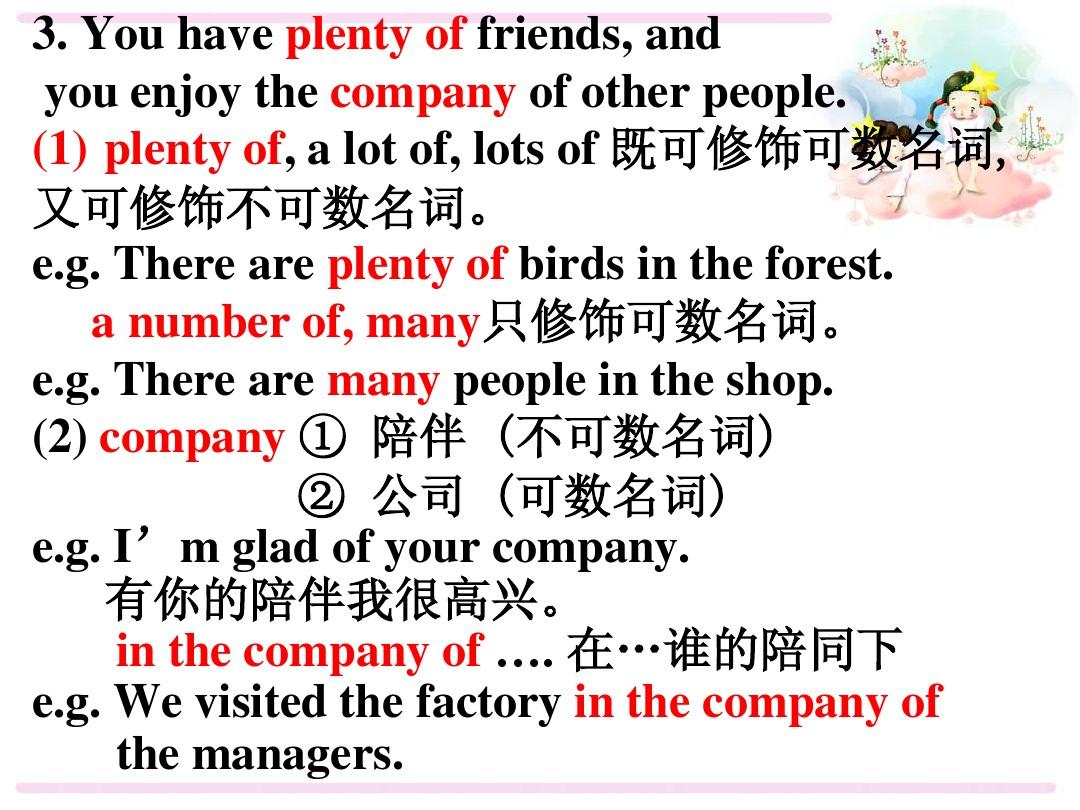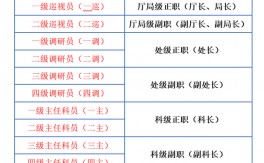plentyof修飾可數(shù)還是不可數(shù)
"plenty of"這個短語通常用來表示“很多的”或“充足的”,它可以修飾可數(shù)名詞復(fù)數(shù)形式,也可以修飾不可數(shù)名詞。例如:
1. 修飾可數(shù)名詞復(fù)數(shù)形式:
- There are plenty of books in the library.
- We have plenty of friends to invite to the party.
2. 修飾不可數(shù)名詞:
- There is plenty of time to finish the project.
- She has plenty of experience in this field.
"plenty of"的使用取決于你想要表達(dá)的內(nèi)容,無論是可數(shù)名詞還是不可數(shù)名詞,都可以使用這個短語來表示數(shù)量的充足。

plenty of 的用法
"Plenty of" 是一個常用的短語,用來表示“很多”或“充足的”。它可以用來修飾可數(shù)名詞復(fù)數(shù)形式,也可以用來修飾不可數(shù)名詞。以下是一些例子:
1. 可數(shù)名詞復(fù)數(shù):
- There are plenty of books in the library. (圖書館里有很多書。)
- We have plenty of time to finish the project. (我們有足夠的時間來完成這個項目。)
2. 不可數(shù)名詞:
- There is plenty of water in the bottle. (瓶子里有很多水。)
- There is plenty of evidence to support the theory. (有足夠的證據(jù)支持這個理論。)
"Plenty of" 通常用于肯定句中,表示數(shù)量或數(shù)量足夠。在否定句中,如果想要表達(dá)“足夠多”的意思,通常使用 "enough" 而不是 "plenty of"。
3. 否定句中使用 "enough":
- There aren't enough chairs for everyone to sit down. (椅子不夠每個人坐。)
- We don't have enough time to finish the work today. (我們今天沒有足夠的時間來完成這項工作。)
"plenty" 也可以單獨使用,作為名詞,表示“許多”或“大量”。
4. 單獨使用作為名詞:
- There's a plenty of opportunities available. (有很多機(jī)會可用。)
- He has a plenty of experience in this field. (他在這一領(lǐng)域有很多經(jīng)驗。)
在使用 "plenty of" 時,要注意它所修飾的名詞是可數(shù)還是不可數(shù),以及句子的肯定或否定形式。
plentyof后面加什么
"Plenty of" 是一個短語,意思是“許多”或“大量”。它后面可以跟名詞,表示有很多那個名詞所指的東西。例如:
1. Plenty of time - 有很多時間。
2. Plenty of food - 有很多食物。
3. Plenty of opportunities - 有很多機(jī)會。
這個短語在英語中非常常用,可以用于表達(dá)在數(shù)量上足夠或有余的情況。

 微信掃一掃打賞
微信掃一掃打賞






